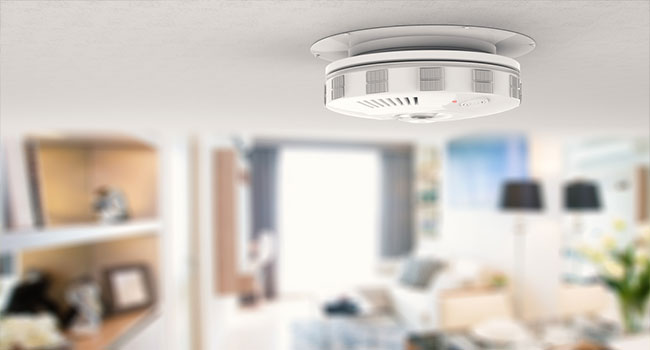
House Passes Bill Creating Grant Program to Install Carbon Monoxide Alarms in Homes
The bill’s passage, which would give grants to elderly and low-income residents, came after the House of Representatives approved a bill that requires carbon monoxide detectors in public housing.
- By Haley Samsel
- Sep 20, 2019
In its second recent action to address carbon monoxide poisoning, the House of Representatives passed a bill on Tuesday that would create a new grant program to install carbon monoxide alarms in the homes of elderly and low-income people as well as schools and other public buildings.
The Zachary and Nicholas Burt Carbon Monoxide Poisoning Prevention Act would also provide incentives for states to pass laws requiring carbon monoxide alarms in residences. The bill is named after two Minnesota brothers who died from poisoning in 1995. Their parents have been advocating for Congressional action on the issue for over two decades.
“As a mother, I know there is nothing more important than keeping our children and loved ones safe,” said Rep. Ann Kuster, a Democrat from New Hampshire who introduced the bill with Republican Rep. Buddy Carter of Georgia. “This legislation will help save lives by combatting deadly yet entirely preventable carbon monoxide poisoning.”
Earlier this month, the House also approved a bill requiring detectors in public housing after more than a dozen residents died from poisoning in the last 16 years. There are over 400 deaths and 20,000 emergency room visits caused by carbon monoxide poisoning each year, according to data from the Centers for Disease Control and Prevention.
Companion measures for the public housing and grant program bills have already been introduced in the Senate. During her remarks on the bill, Kuster said the legislation is proof that Congress can work together to find common ground during divisive times.
“I’m thrilled to see this commonsense measure pass the House and I urge the Senate to bring it swiftly to a vote and protect our most vulnerable citizens,” Kuster said in a statement.
Kuster’s bill was supported by the Security Industry Association, which represents more than 1,000 companies specializing in safety and security technology solutions. Those companies include manufacturers and installers of carbon monoxide alarms and detection devices, the SIA said in a press release.
"Thanks to the leadership of Rep. Kuster, this bipartisan legislation provides much-needed resources to states seeking funding relief for carbon monoxide detector installation," SIA CEO Don Erickson said in a statement. "Carbon monoxide detectors help saves lives – we commend the passage of H.R. 1618 and hope the Senate takes swift action to pass this critical legislation."
About the Author
Haley Samsel is an Associate Content Editor for the Infrastructure Solutions Group at 1105 Media.